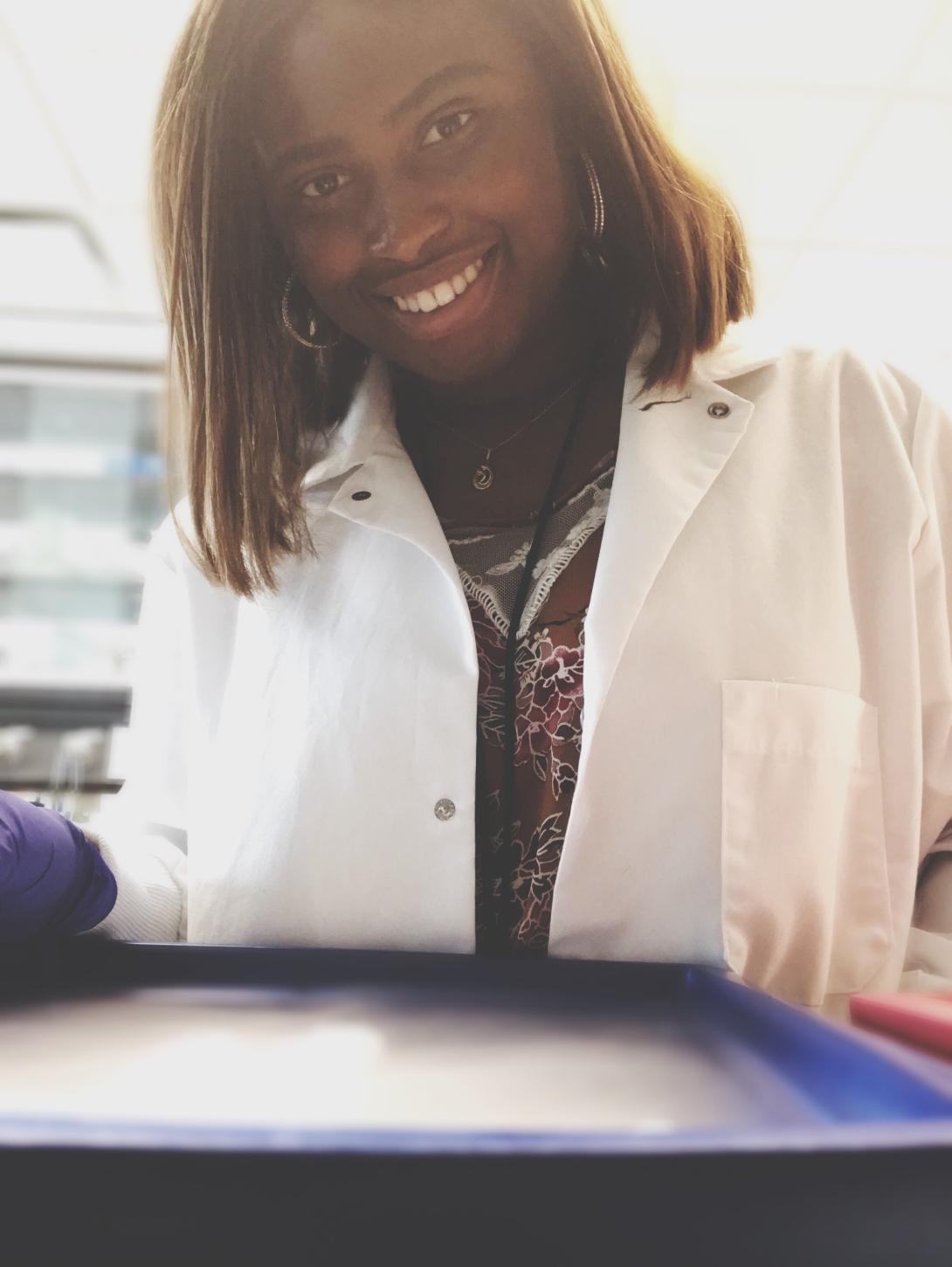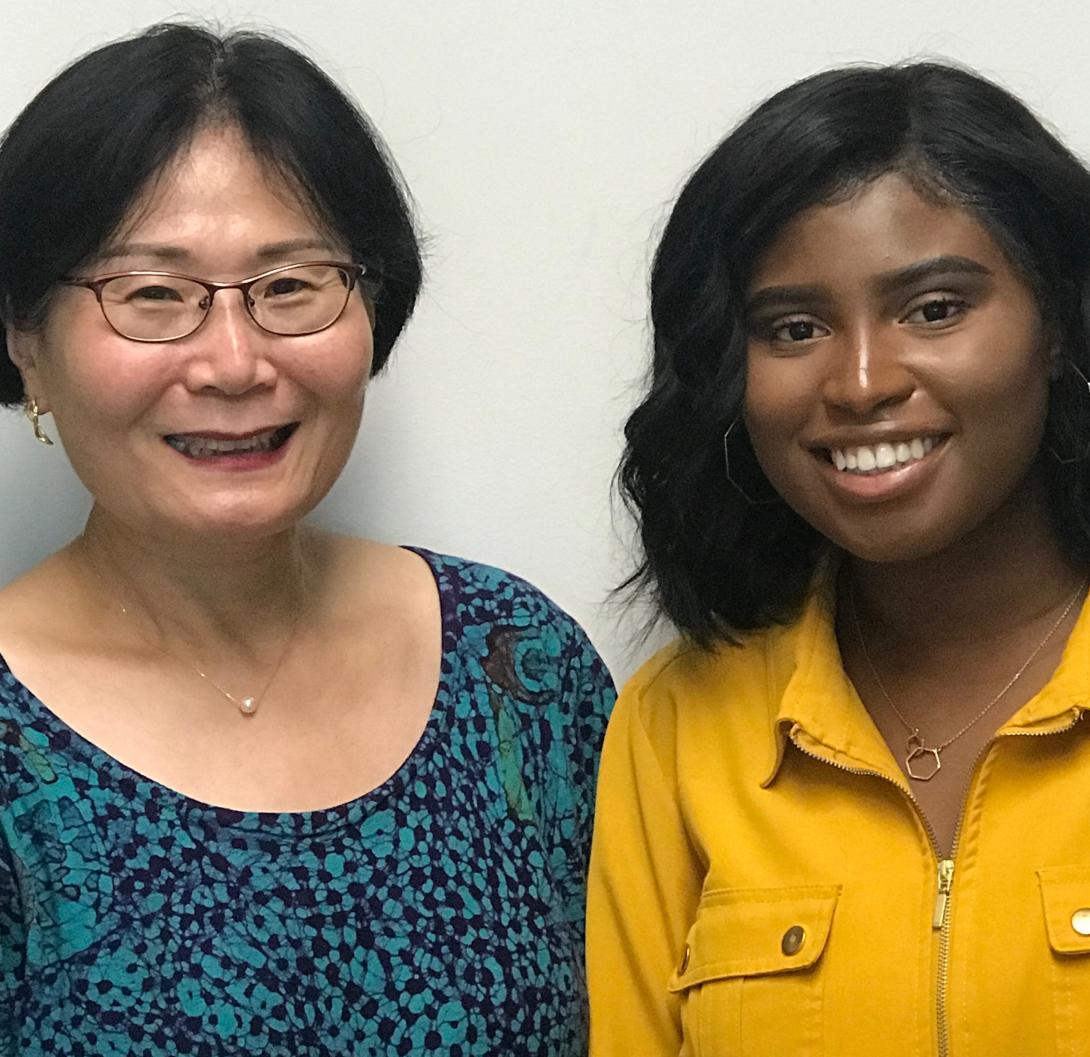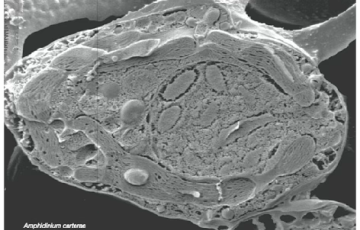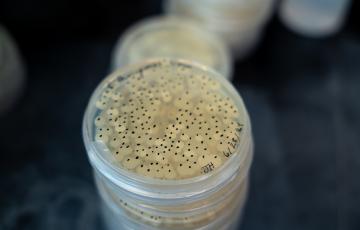Former IMET intern Adjele Wilson works on COVID vaccine

After graduating from the University of Maryland Eastern Shore with a degree in biology this year, Adjele Wilson had been planning to go straight to graduate school. She was interested in microbiology, biostatistics, and public health. She had developed many important research skills from her internship at IMET last summer to make her an attractive candidate. However, with the COVID-19 pandemic taking hold across the world during her last semester of college, she realized that she had an opportunity to use her skills to help out in the race to develop a safe and effective vaccine. For the last couple of months, Adjele has been working at a biotech company that is developing a promising new vaccine.

This position has offered great opportunities to learn new skills, work with experienced scientists, and contribute to an important project. Adjele said that the best part of the job has been the extensive training program. “They don’t just throw you in there to figure it out. There was a lot of help throughout the whole process.” There have, of course, been challenges. Adjele has been working on an assay that examines antibodies in a sample. Only after the better part of a day can she determine if the assay has worked properly, at which point it is time to go home. There have been a few frustrating days, but through perseverance, Adjele has mastered the process.

Adjele has long been interested in science and in using science to help people. She was drawn to math and science as early as elementary school. After moving to Maryland from Togo at age 8, she was learning English and found these subjects a little easier to grasp. By the time she reached high school, she knew she was interested in the sciences and had a mentor who encouraged her to pursue biology in college. As a student at UMES, she conducted research on the feeding behaviors of bay anchovies and conducted nutrient analysis on multiple sites of the Maryland Coastal Bays. Her most intensive research experience came during the summer before her senior year when she interned at IMET. This was in 2019, the 17th year of the IMET Summer Internship program directed by Dr. Rosemary Jagus and supported by the Bunting Family Foundation.
Adjele interned in the lab of Dr. Sook Chung studying the hormones of crabs. She investigated how nutritional stress during larval stages can affect crabs. Through this research, she learned how to do polymerase chain reactions (PCR). PCR enables scientists to make many millions of copies of a specific DNA sample and is widely applicable across research areas. This skill often came up during interviews for graduate school and jobs in industry. She said, “Dr. Chung was adamant about teaching me different skillsets for the future – learning PCR, learning to troubleshoot, learning why these processes function this way. I’m grateful that I was able to learn these skills at IMET.”
Reflecting on her time at IMET, Adjele also valued the programs that helped her develop skills outside the lab that are important to a scientific career. She remembered learning techniques for science communication from the Integration and Application Network and from Dr. Kate Gillespie, the internship coordinator at the time. After presenting her research at IMET at the end of the summer, she ended up presenting again at two national conferences – the Annual Biomedical Research Conference for Minority Students and the National Association of African American Honors Programs. She had an impressive research project and strong communication skills that helped her talk with potential employers and graduate school advisors at the conferences.
While Adjele has decided not to go to school full-time this year, she is starting an online Masters in Public Health at Temple University. She has been interested in public health for several years because it brings together scientific research with real-world impact on communities. “Seeing how important it is for people to enter public health professions confirmed that I should be in this field,” Adjele said. “This work will be beneficial to the community and improve the health of people.” In the future, Adjele hopes to earn a PhD in Biostatistics and work for a government agency like the Center for Disease Control. For now, however, she has a master’s degree to work on and a vaccine to test.


